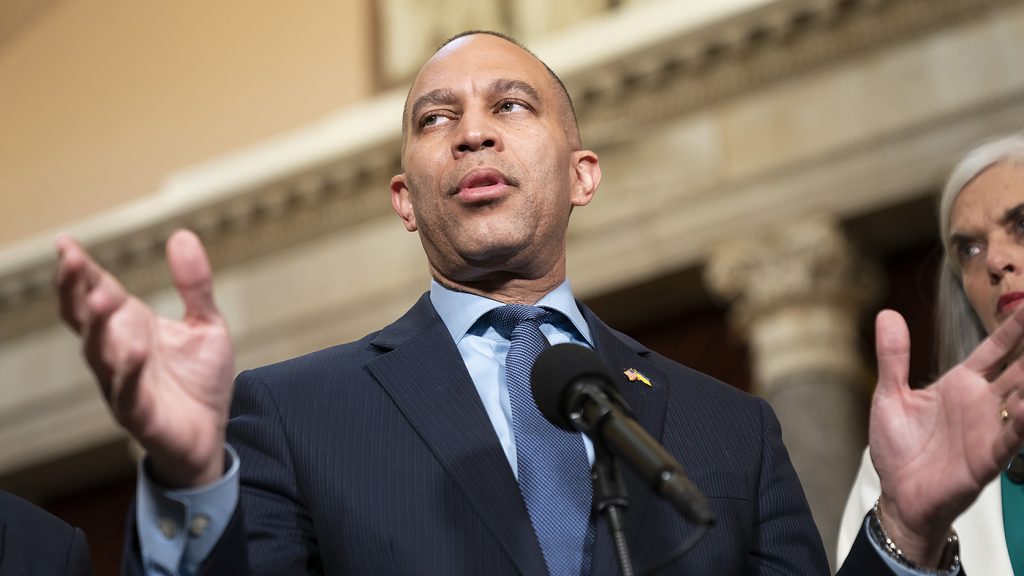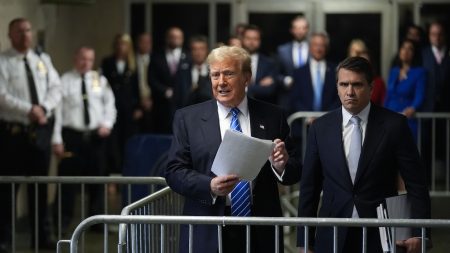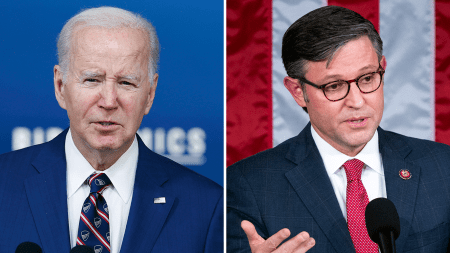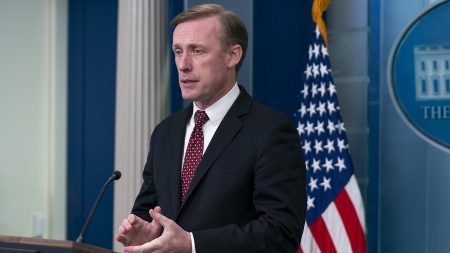House Minority Leader Hakeem Jeffries (D-N.Y.) said Friday that the White House is not giving advice to Democratic leaders on whether to protect Speaker Mike Johnson (R-La.) from a conservative rebellion, if one occurs.
Several Democrats have already said they would help keep Johnson in power if his hard-line opponents try to overthrow him due to frustrations with his bipartisan deal-making. Jeffries has acknowledged this Democratic rescue effort, although he has not endorsed it himself.
On Friday, Jeffries stated that President Biden has not expressed an opinion on the issue. When asked if this means the White House is leaving the decision entirely to House Democrats, Jeffries confirmed.
“That’s correct,” he said. “And that was also the case in October of last year” — referring to the removal of former Speaker Kevin McCarthy (R-Calif.), which was supported by every voting Democrat.
The Democrats’ approach to Johnson has been different.
After Johnson was threatened by conservatives for making deals with Biden on federal spending and government surveillance, several Democrats said they would vote to support the Speaker if one of those hard-liners brings a removal resolution to the floor.
Their condition? He would have to guide a foreign aid package — including billions of dollars for Ukraine, Israel, Taiwan and humanitarian aid in Gaza — through the House, where it has been stuck for months.
This week, Johnson brushed aside his conservative critics to champion that foreign aid legislation, which moved through the House on Friday and is expected to receive final approval on Saturday with broad bipartisan support.
It’s unclear if Johnson’s decision to defy his right flank will result in an attempt to remove him from his position.
Rep. Marjorie Taylor Greene (R-Ga.) has already introduced a motion to vacate resolution, which has the support of two additional Republicans: Reps. Thomas Massie (Ky.) and Paul Gosar (Ariz.). But Greene has not said when — or even if — she intends to force a vote on the measure.
Complicating her decision, former President Trump recently endorsed Johnson’s performance as Speaker, saying he’s “doing a very good job.” And a number of Johnson’s other conservative critics are opposing the Speaker’s removal, citing the absence of a clear-cut successor and the political perils of launching an internal leadership battle so close to November’s elections, when control of the House is up for grabs.
Still, with the fate of the foreign aid legislation yet to be decided, there remains a chance that Greene — or another hardliner — could push a motion to vacate resolution to the floor.
Jeffries, in recent months, has predicted that there are enough Democrats willing to step in and table that resolution so that Johnson would survive the rebellion attempt.
Jeffries has described his prediction as an observation, not a declaration — a statement he reiterated on Friday. And he stressed that any final decisions on a motion to vacate strategy would be made only after a thorough discussion with the House Democratic Caucus.
He said, "But let's focus on the most important things first. We still need to complete the national security bills."









